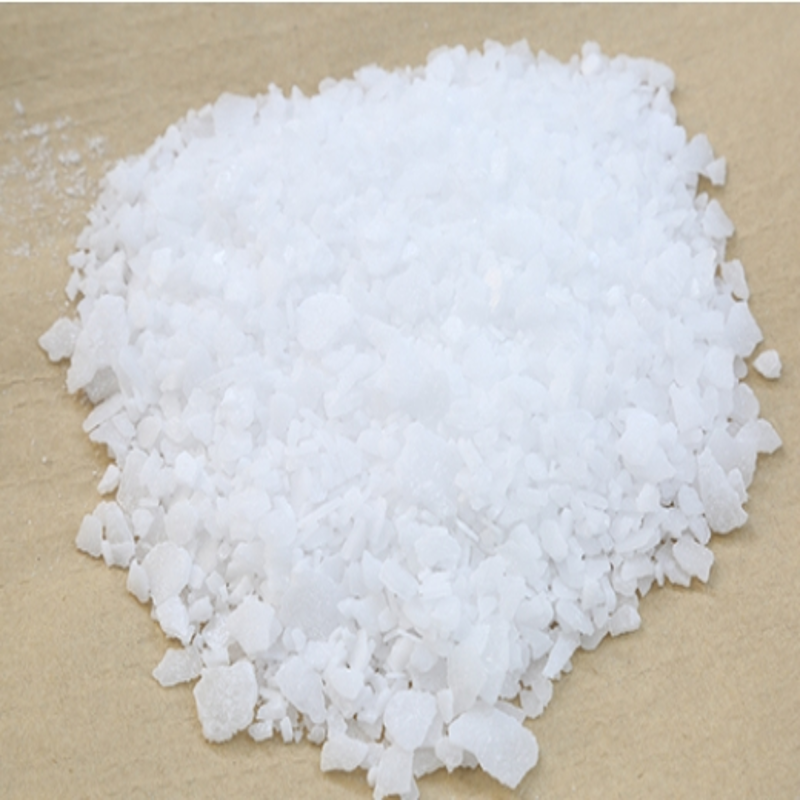-
Categories
-
Pharmaceutical Intermediates
-
Active Pharmaceutical Ingredients
-
Food Additives
- Industrial Coatings
- Agrochemicals
- Dyes and Pigments
- Surfactant
- Flavors and Fragrances
- Chemical Reagents
- Catalyst and Auxiliary
- Natural Products
- Inorganic Chemistry
-
Organic Chemistry
-
Biochemical Engineering
- Analytical Chemistry
- Cosmetic Ingredient
-
Pharmaceutical Intermediates
Promotion
ECHEMI Mall
Wholesale
Weekly Price
Exhibition
News
-
Trade Service
Written | xiaoxia editor | Wang Duoyu typesetting | Repair of peripheral nerve (nerve outside the brain and spinal cord) damage depends on damaged axons and non-nerve cells surrounding nerve cells such as Schwann cells (SCs) and Macrophages
.
At the distal end of the injury site, SCs release myelin sheath, dedifferentiate, proliferate and secrete factors to recruit inflammatory cells; then axons degenerate; circulating neutrophils and macrophages are taken up together with resident macrophages
.
The above process contributes to axon regeneration and remyelination
.
Although the peripheral nervous system can regenerate after injury, the regeneration rate is quite slow, and due to the loss of regeneration promotion signals, regeneration may be incomplete
.
Studies have shown that infiltrating and resident macrophages can transform into a regenerative phenotype by removing inhibitory myelin and axon fragments, secrete factors that affect the function of SCs and nerve regeneration, and provide metabolic support for axons.
Play a key role in axon regeneration
.
Although the immunobiology of macrophages has only recently been explored, monocarboxylic acid transporters (MCT), especially MCT1, have been shown to be essential for regulating multiple immune cell functions
.
However, the role of MCT1 in the immune and metabolic functions of macrophages and its role in neurological injury and regenerative biology are not yet clear
.
Recently, the research team of Johns Hopkins University School of Medicine published a research paper titled Macrophage monocarboxylate transporter 1 promotes peripheral nerve regeneration after injury in mice in the Journal of Clinical Investigation
.
The study, by selectively knocking out and overexpressing MCT1 in macrophages, found that MCT1 contributes to the metabolism, phenotype and function of macrophages and supports peripheral nerve regeneration, proving that regulating macrophage metabolism can promote peripheral nerve damage Recovery
.
Therefore, regulating macrophage metabolism provides a new therapeutic strategy for peripheral nerve injury repair
.
The research team previously demonstrated that transgenic mice with a whole body knockout of MCT1 cannot regenerate nerves after nerve injury
.
In order to analyze the special role of MCT1 in peripheral nerve regeneration, by constructing different cell types of MCT1 knockout mice, the research team selectively knocked out MCT1 from macrophages, peripheral nerve cells, Schwann cells and DRG neurons
.
They found that macrophages specifically knocked out the MCT1 gene in mice, and the macrophages reduced lactate transport
.
Therefore, the research team established a nerve injury model by squeezing the proximal thigh sciatic nerve of mice, and found that only the macrophage MCT1 knockout mice had a very slow recovery of motor nerve state speed and compound muscle action potential.
The distribution of muscle joints and the regeneration of myelinated axons are significantly reduced
.
The above results indicate that macrophage MCT1 plays an important role in peripheral nerve regeneration, and its loss will impair peripheral nerve recovery after injury
.
Neuroimmune interaction plays a vital role in the regeneration of peripheral nerves after injury
.
The research team found that mice with MCT1 knockout of macrophages did not undergo macrophage recruitment after nerve injury, suggesting that macrophage recruitment itself is not affected by MCT1 defects
.
In addition to being highly expressed and recombined in macrophages, LysM-Cre is also expressed in neutrophils
.
So they evaluated whether the migration of neutrophils in mice with macrophages-specific knockout of MCT1 changed after nerve injury
.
Strangely, there was no difference in neutrophil infiltration at the injury site after MCT1 deletion
.
So the research team changed the angle and analyzed the changes in the phenotype of macrophages or neutrophils
.
As expected, after injury, IL-1β and TNF-α were significantly increased in mice lacking macrophages MCT1, indicating that MCT1 contributes to the inflammatory phenotype of nerve-damaged macrophages
.
The experiment of knocking out macrophage MCT1 in transgenic mice is essential to improve people's understanding of the specific role of MCT1 in macrophage cell biology and nerve regeneration
.
To explore the transformational significance of these findings, the research team tested peripheral nerve regeneration in transgenic mice with up-regulated MCT1 expression in macrophages
.
Compared with littermate control mice, macrophages isolated from these mice up-regulated MCT1 expression and lactate transport, as well as improved nerve regeneration after compression, indicating that macrophages MCT1 are not only necessary for nerve regeneration And the up-regulation of this transporter can accelerate nerve regeneration and may become a potential target for the treatment of patients with nerve damage
.
In summary, this study demonstrated for the first time the feasibility of adoptive macrophage cell transplantation to treat peripheral nerve injury.
These macrophages can upregulate MCT1, thereby changing its cell metabolism and function, and helping peripheral nerve regeneration
.
Therefore, regulating macrophage metabolism provides a new therapeutic strategy for peripheral nerve injury repair
.
Link to the paper: https:// Open for reprinting, welcome to forward to Moments and WeChat groups







